26+ Sample Internship Assessments
-
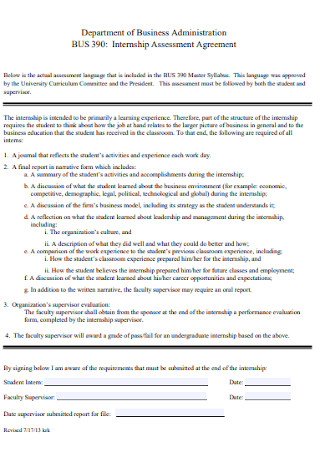
Internship Assessment Agreement
download now -
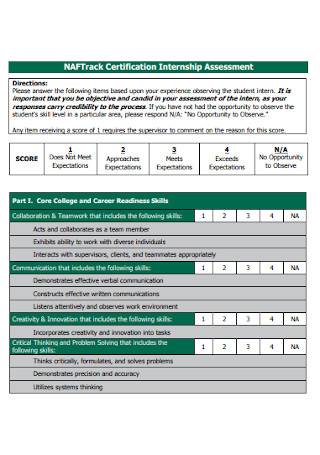
Certification Internship Assessment
download now -
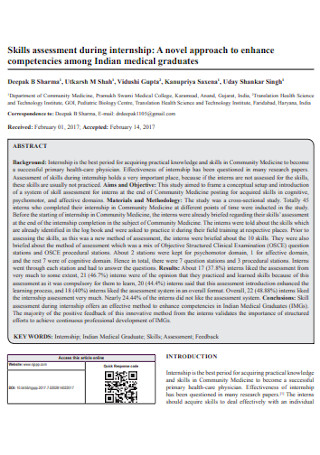
Skills Assessment During Internship
download now -
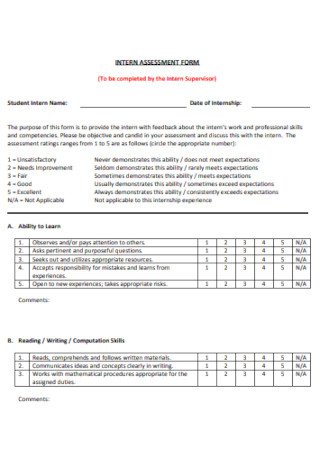
Intern Assessment Form
download now -
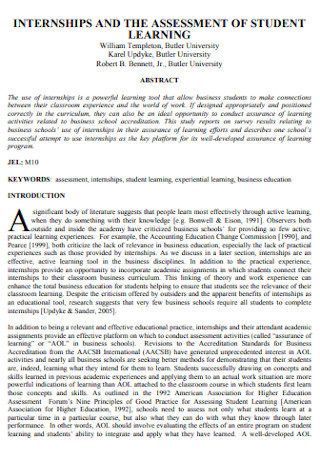
Internship Assessment of Student Learning
download now -
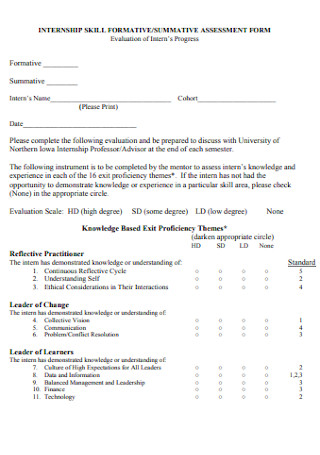
Internship Assessment Form
download now -
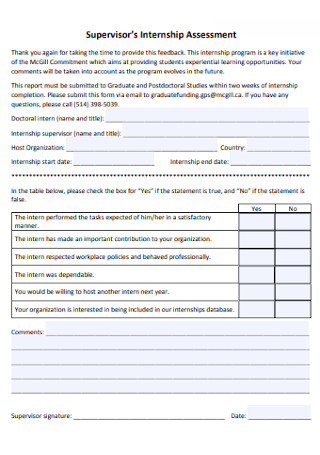
Supervisor’s Internship Assessment
download now -
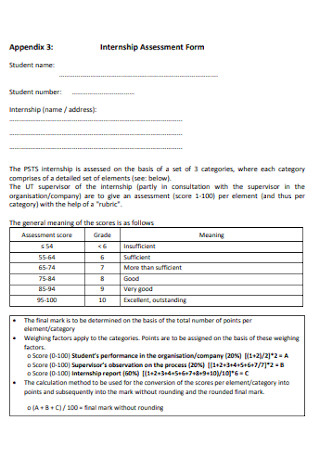
Internship Assessment Form Format
download now -

Assessing Internship and Industrial Placement
download now -
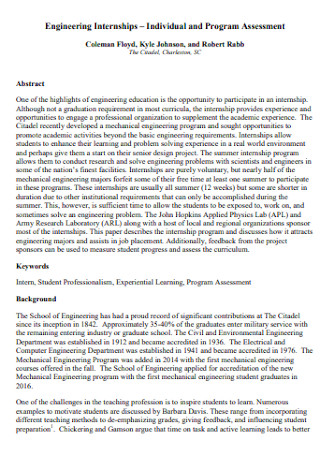
Engineering Internship Assessment
download now -
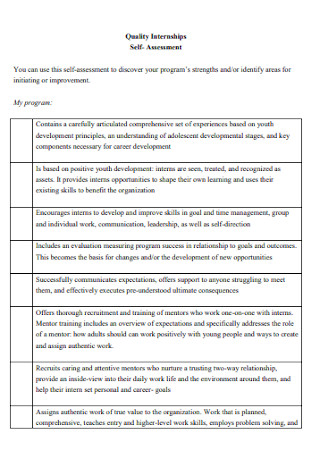
Quality Internships Self Assessment
download now -
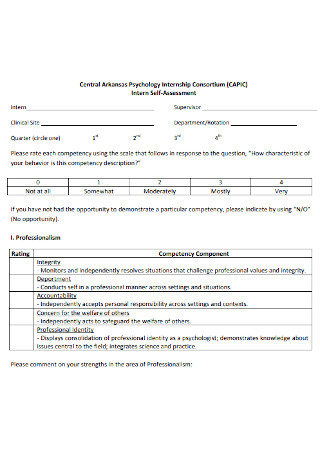
Intern Self-Assessment
download now -
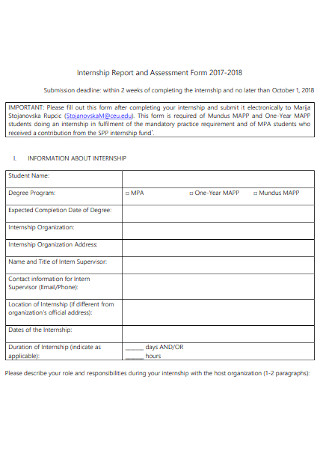
Internship Report and Assessment
download now -

Internship Report and Assessment Form
download now -
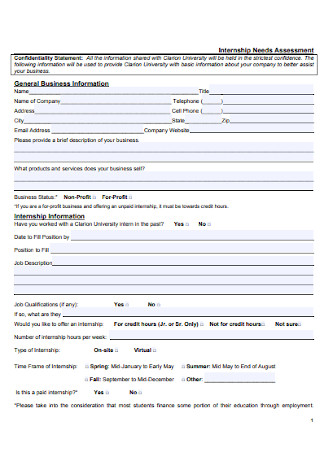
Internship Needs Assessment
download now -
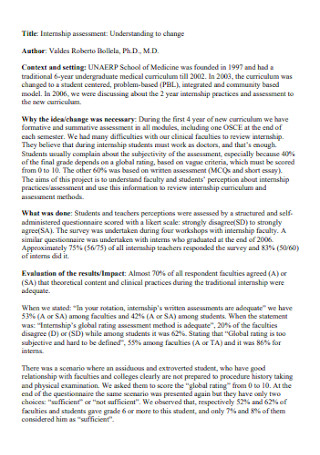
Simple Internship Assessment
download now -
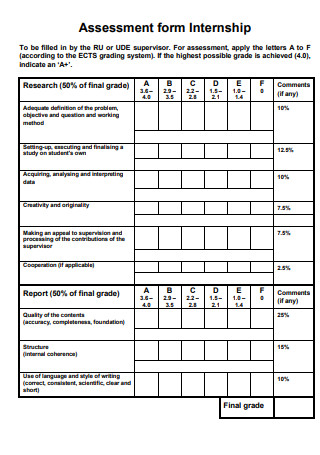
Assessment form Internship
download now -
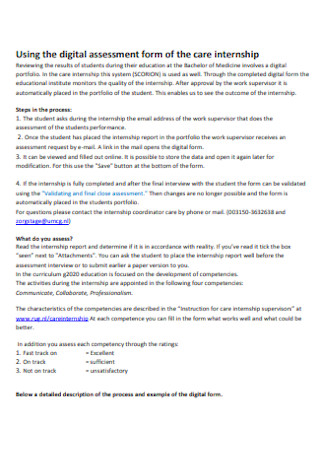
Digital Assessment for Care Internship
download now -
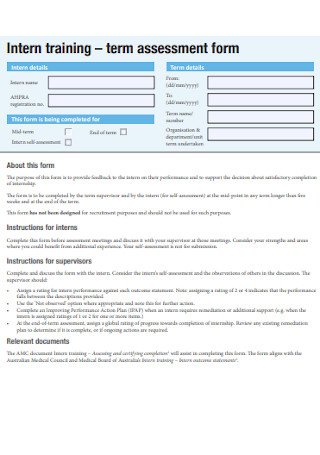
Intern Training Assessment Form
download now -
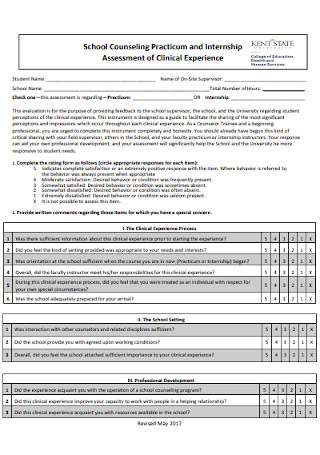
Internship Assessment of Clinical Experience
download now -
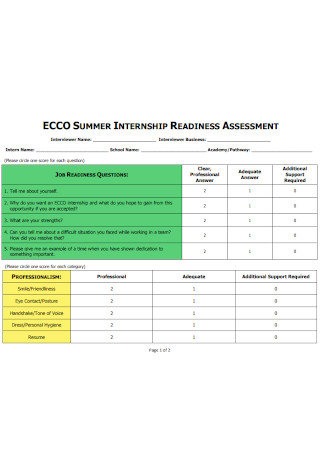
Internship Readness Assessment
download now -
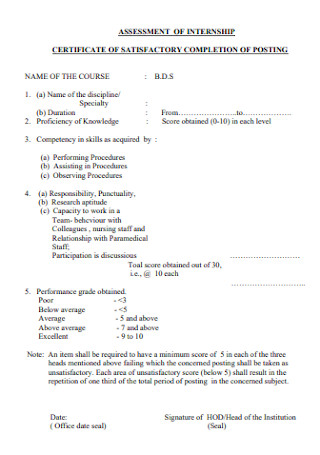
Basic Assessment of Internship
download now -
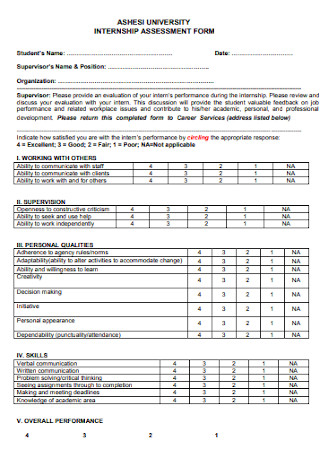
University Internship Assessment Form
download now -
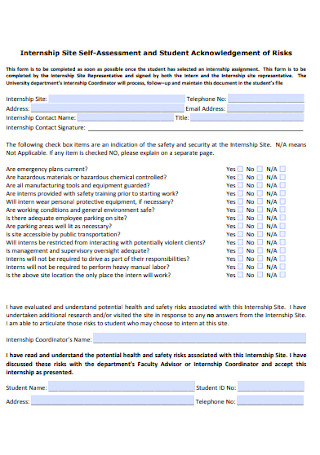
Internship Site Self Assessment
download now -

Internship on Impact Assessment
download now -
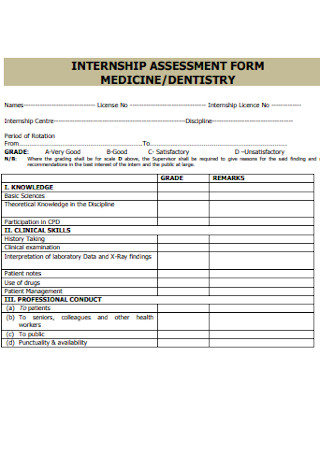
Medicine Internship Assessment Form
download now -
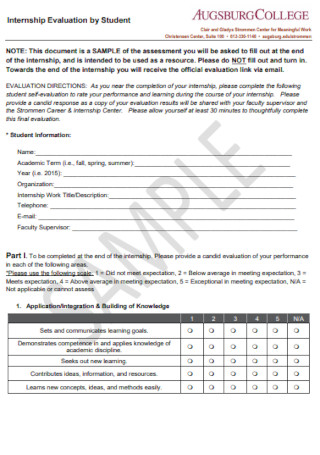
Internship Assessment by Student
download now
FREE Internship Assessment s to Download
26+ Sample Internship Assessments
What Is an Internship Assessment?
Areas of Assessment in Internship Programs
Tips for Interns and Trainees
How to Create an Internship Assessment
FAQs
What is an internship assessment?
How do I give feedback to an intern?
How do you measure the success of an internship program?
What Is an Internship Assessment?
An internship assessment is a written evaluation of an intern or on-the-job trainee’s performance. The assessment is usually conducted and drafted by a supervisor or a Human Resources professional.
According to an article published by Finances Online, there are an estimated 300,000 number of interns in the United States annually. Around 31% begin internships after college graduation. And statistics show that half or 50% of people have undergone internships more than once.
Areas of Assessment in Internship Programs
Internships vary across all industries. There are corporate internship programs for would-be marketing professionals or salesmen. There are on-the-job training programs for aspiring reporters and journalists; and there are even unpaid internships that people still sign up for. And depending on the industry, there can be different areas that employers look for when grading or measuring an intern’s performance. The following examples below are just some common areas of assessment.
Tips for Interns and Trainees
How to Create an Internship Assessment
You want to create a comprehensive but fair assessment that does not simply contain a grade, but an assessment that enables the intern to foster a keen awareness and desire for improvement. To begin, use a convenient template from the choices above and simply edit it according to your needs. Also, keep in mind the following guidelines when crafting your internship assessment:
Step 1: Basic Information
Start off by indicating all the general information of the intern. State the intern’s complete name, designation or department, length of internship, name of the immediate supervisor, and other relevant details. It is optional but you can also briefly identify the learning objectives. Keep it short and direct with a maximum of two to three bullet points.
Step 2: Standard Rubric
Any evaluation or assessment form must always include a rating scale or rubric. To measure the intern’s performance, establish a standard rubric to base your rating on. This can be either in descriptive or numerical format. If you opt to use the latter, 1 normally represents the lowest score you can give while 5 is the highest. Lastly, make sure you provide instructions on how to use the rubric.
Step 3: Criteria for Assessment
To apply your rubric, you need to prepare a set of questions or statements to use as criteria. Organize these items by grouping them into clearly differentiated sections. Use bold headings to separate each section. When grading your intern’s performance, you need to ask yourself what aspects or areas you want to focus on. Refer to the examples above for ideas.
Step 4: Suggestions, Recommendations, Comments
Lastly, provide adequate space for comments and suggestions. As an appraiser, you want to justify your ratings as well. If there are noteworthy traits or work output that’s commendable, you can specify these in the comment section. In the same way, this section is also for identifying areas that need improvement.
FAQs
What is an internship assessment?
An internship assessment is a graded evaluation that appraisers use to measure the performance of an intern or trainee. It aims to assess various areas of conduct including skills, work ethic, attitude, etc.
How do I give feedback to an intern?
As much as possible, you want to give objective yet fair feedback. Constructive criticism is perfectly acceptable for as long as the goal is to help the intern grow and learn. When giving feedback, be honest and straightforward as much as possible. You can cite specific instances to support your claims or arguments.
How do you measure the success of an internship program?
To measure the success of an internship program, you need to have standard metrics in place first. Identify your key success indicators. This could be targets, deadlines, participation etc. If there is evident growth and professional development in the intern at the end of the program, then that is usually a clear sign that it was successful.
An internship program is a good opportunity to gain knowledge, hone skills, and expand one’s professional network. And aside from on-the-job training, proper assessment and evaluation is needed in order to help the intern succeed and grow. Browse the sample templates above to draft your own internship assessment form now!
